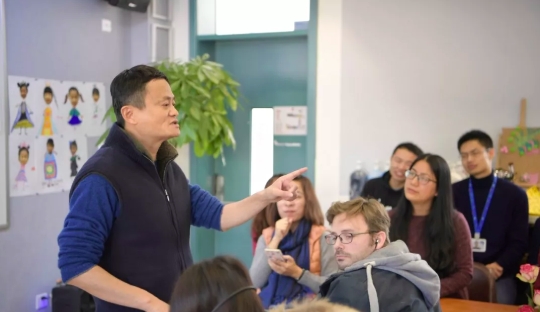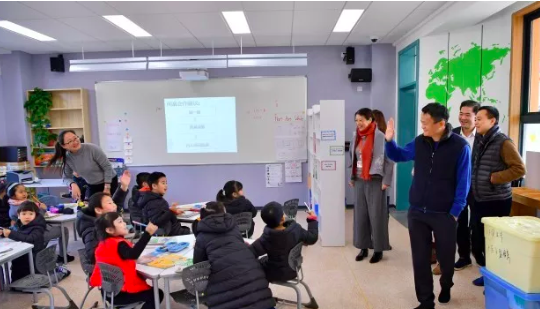云谷要培养面向未来的孩子
2017年12月19日,谷主马老师来到云谷学校,和云谷的小谷粒们、老师们见面。这次马老师在云谷分享了些什么,进行了哪些教育思想的碰撞呢?让我们一起回顾一下吧!

从阿里巴巴退休后,我要做的三件事情
一直以来我都在想:未来有一天,我从阿里巴巴退休以后,我会做些什么?什么是我最感兴趣的事情?可以肯定的是,我最感兴趣的就是教育。所以未来我有三件事情是一定要做的:
第一件事情是马云公益基金会。中国有七八千万孩子生活在农村,分布在偏远或者相对不发达的地方,这个项目的工作之一就是要解决乡村教师、乡村校长、乡村孩子们的教育问题。我相信云谷现在正在探索和实践的优秀教育理念,将来也有机会通过互联网和其他方法,传递到乡村去。
第二件事情是湖畔大学。“企业家”这个群体是能够创造社会财富的群体,当社会财富多了,科技投入、教育投入、其他投入也会增多。湖畔大学就是要告诉企业家不能唯利是图,会赚钱但要赚有意义的钱。
最后一件事情,就是基础教育,也就是要和在座的各位老师共同努力的事情。我希望云谷能扎根于对中国教育的探索,走出一条具有本土特色的教育改革创新之路。
文化是一颗种子
我们要把它种在孩子的心里,等待发芽
我父母早前是戏曲演员,父亲搞曲艺,母亲则是评弹。我五六岁还没上学的时候,就跟着父母出去演出,我看了无数的演出,不断感受到他们对艺术的热忱,耳濡目染之下的我自然也就有了兴趣。小时候听得多,现在张嘴就能唱,而且每次都觉得特别亲切。
小时候我还听了很多像岳飞、三国演义这样的故事,我懂得了一样东西,就是行侠仗义、兼济天下,这是从小就埋在心里的。这些影响并不是因为父母刻意来教我,或者带我找老师去学,就是因为小时候无意识中天天听得多了。
所以,如果说文化和艺术是一颗种子,那就应该在孩子幼儿园和小学的时候种下去,它一定会发芽,生长。如果把这颗种子放到中学或者大学去“种”去教,那就太晚了。

琴棋书画不单是掌握技能,而是透过艺术唤醒灵感
琴棋书画,“琴”是音乐,“棋”培养的是格局,“画”让人充满想象,“书”讲究定力。很多优秀的政治家、科学家,但凡取得一定成就的人,大都热爱某种艺术,他们一旦遇到困难和瓶颈,可以在艺术里找到灵感。
我们让孩子学习琴棋书画,不单是让孩子掌握技能,不是要求孩子学习特定哪种乐器,或者考几级几级,比拼弹奏的技能有多高。现在的社会上老师教孩子弹奏、唱歌“技能”的水平已经很高了,有很多人都会唱歌,但会唱歌不代表懂音乐。我看到有的老师教冰上芭蕾,给孩子换一首完全不同的曲子,孩子还是用一样的动作去跳,这就是不理解音乐,而我们的音乐课应该教孩子懂得如何用音乐表达情绪。
我们要让孩子对艺术充满热爱,通过艺术唤醒孩子的灵感,去培养孩子对于艺术的理解,以及让孩子在艺术里获得“技能”之外的东西。
云谷是国际化办学而非国际学校
通过语言让孩子拥有国际化思考的能力
不论是外国人学中文,还是我们学习外语,都不仅仅是学习一门语言本身,也不是用来炫耀比别人多掌握一项技能,成为将来找工作的加分项。如果只是单纯为了找工作,例如翻译工作,你翻译得再好,这只是一个skill(技能),人工智能一定会做得更好。对孩子们来说,学习外语重要的是体验不同语言背后的文化乐趣,并且懂得尊重不一样的文化。
云谷绝对不是一所“国际学校”,而是要成为“国际化学校”,这两者是有本质区别的。多会说一门外语并不能叫国际化,云谷的孩子重要的是要有国际化思考的能力。
我们的孩子应该通过学习一门新的语言进入另外一种新的文化、新的世界、新的领域,就像多了一把钥匙,为自己的人生打开一扇新的大门,一扇“国际化”的大门。当然,每个孩子打开哪一扇语言之门,是英语还是法语或者其他,都没关系,关键是按自己的兴趣找到它,我相信每个孩子一定有属于自己的那一扇门和那一把钥匙。每个孩子都是天造的,每个孩子都是难得的,我们一定要想办法培养和唤醒孩子的兴趣和潜力。
情商、智商和爱商,一个都不能少
不管什么样的人,有三点很重要:情商、智商和爱商。
我觉得,一个人的成功与否,是由情商和智商决定的。情商高的人,会与人打交道、善于沟通,别人会愿意帮助他,会更容易成功;智商高的人,失败的概率比较低,但智商高的人未必会成功。只有情商和智商两者都相对高的人,才容易成功。
对云谷来说,我们培养的孩子不仅要拥有情商和智商,更重要的是还要培养他们的“爱商”。爱商是什么?Q of Love,是情怀,是一份责任和担当。拥有爱商的人会受人尊重,即使失败也依旧受人尊重;而有的人即使成功,也不受人尊重,原因就是缺乏爱商。
云谷的孩子要思想健康、身体健康,拥有好奇心
当孩子们走出云谷的时候应该都是健康的,这个健康有两层含义:思想健康和身体健康。
思想健康的孩子容易获得快乐,当孩子碰到困难的时候不是沮丧,让孩子懂得如何应对和处理困难,而不是一个劲儿钻牛角尖;身体健康,体育运动对于人的全面发展至关重要。我希望孩子通过运动去学习运动规则、运动精神和运动文化,体会竞技的魅力和其中的快乐,通过培养孩子对运动的兴趣,让孩子养成运动的习惯,孩子一旦热爱运动便会自然而然地探索运动。如果仅仅是天天沿着操场跑两圈的体育教育,很难让孩子达到“热爱”的程度。体育培养的不只是孩子的竞争意识,还有团队精神,也许我们孩子踢足球不一定得冠军,但是要培养他们有团队协作的意识,这才是最珍贵的。
我希望云谷把每一个孩子培养成真正的人,有幸福感的人,这就需要孩子们葆有一颗好奇心。但现在我们很多人都在渐渐失去好奇心。人家经常批评我,你怎么跟各种人都打交道? 我自己心里明白,我有好奇心,我想要看看这些奇怪的人和事是真的还是假的,我亲眼见到后,用事实和逻辑,证明他们是对还是不对。
如果人类没有好奇心,世界怎么进步?如果我们的孩子没有好奇心,哪儿来的观察力、想象力和创造力?
云谷要培养面向未来、适应未来的孩子
云谷今天所有的努力,都要着眼于关注未来的教育,我们一定要培养面向未来、适应未来的孩子。新的技术革命兴起以后,机器人、人工智能将会取代许多就业岗位,但是人类的创造力和想象力是机器代替不了的,至少一两百年内替代不了。我们培养的孩子未来怎么样体验时代、适应时代和创造时代,如何在三十年以后成为引领者,这是云谷需要思考的。
当然,云谷所有的教育创新和实践,都要遵循教育规律,遵循孩子成长的规律。育人一定是一个慢的过程,学校的发展是长期的,衡量云谷的好与不好需要至少三十年,需要经过三四代老师的努力,才能逐渐形成云谷的文化和味道。
阿里巴巴发展到今天,我们中间不知道走了多少翻来覆去的路,从湖畔花园到今天的阿里巴巴,我们的方向、我们的使命、愿景和价值观始终没变过。云谷在寻找方向的过程中,会因为孩子、因为家庭、因为社会去做一些微调,但是“培养面向未来、适应未来的孩子”的大方向不会变。
我们希望云谷做成“不一样”,但这并不是让这种“不一样”成为一个模板被全国复制,每所学校都应该有自己不同的风格和独特之处,云谷要做的应该是分享。未来,中国会有“云谷系”学校,但它绝不是一个标准,而是系列教学理念的参照。
最后,云谷绝对不会成为一所“贵族”学校,贵族不是“贵”做出来的,是“德”做出来的。贵族跟钱没关系,贵族是人的言行举止和气质,是人的品位,是一种感觉。

